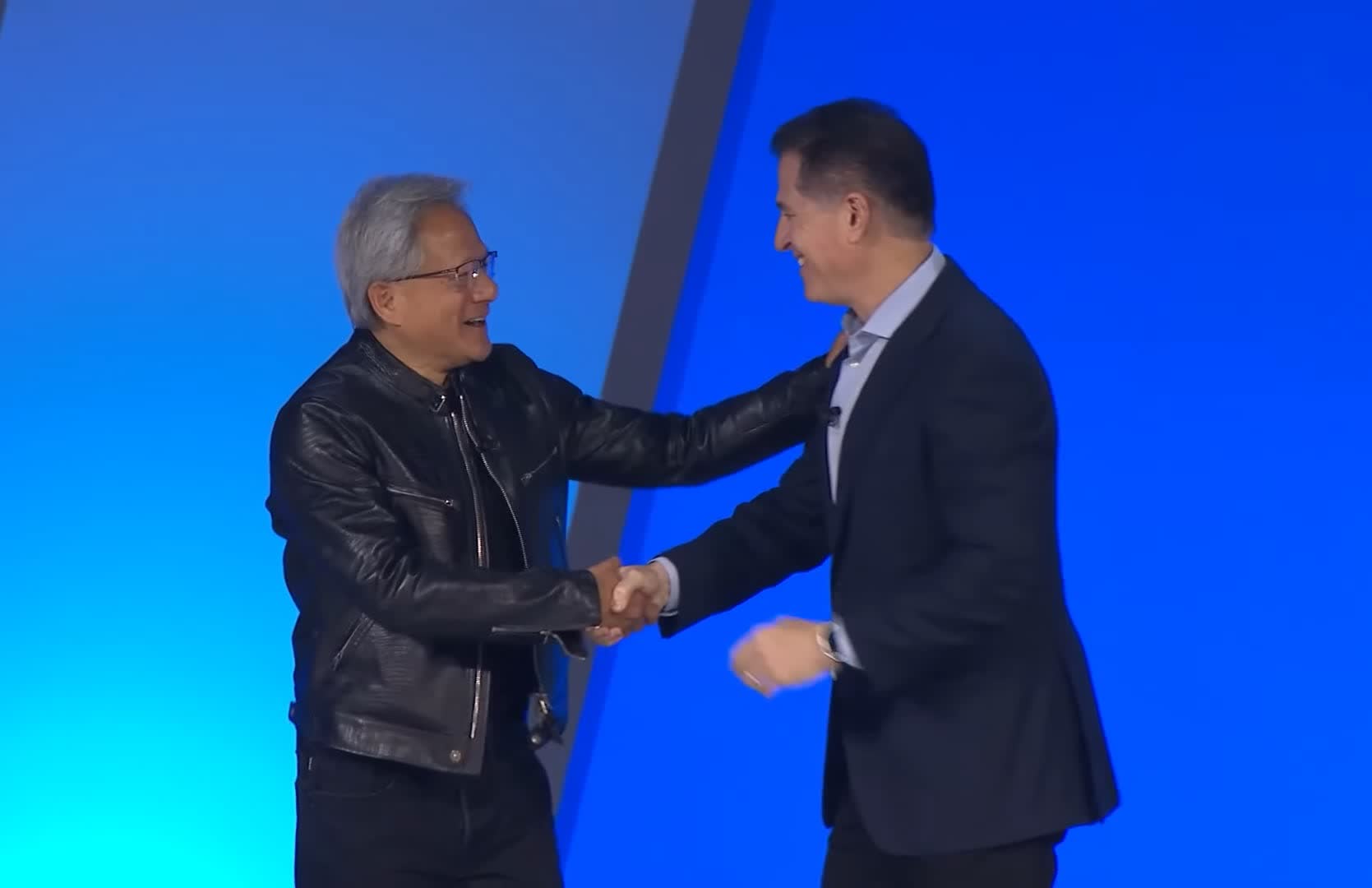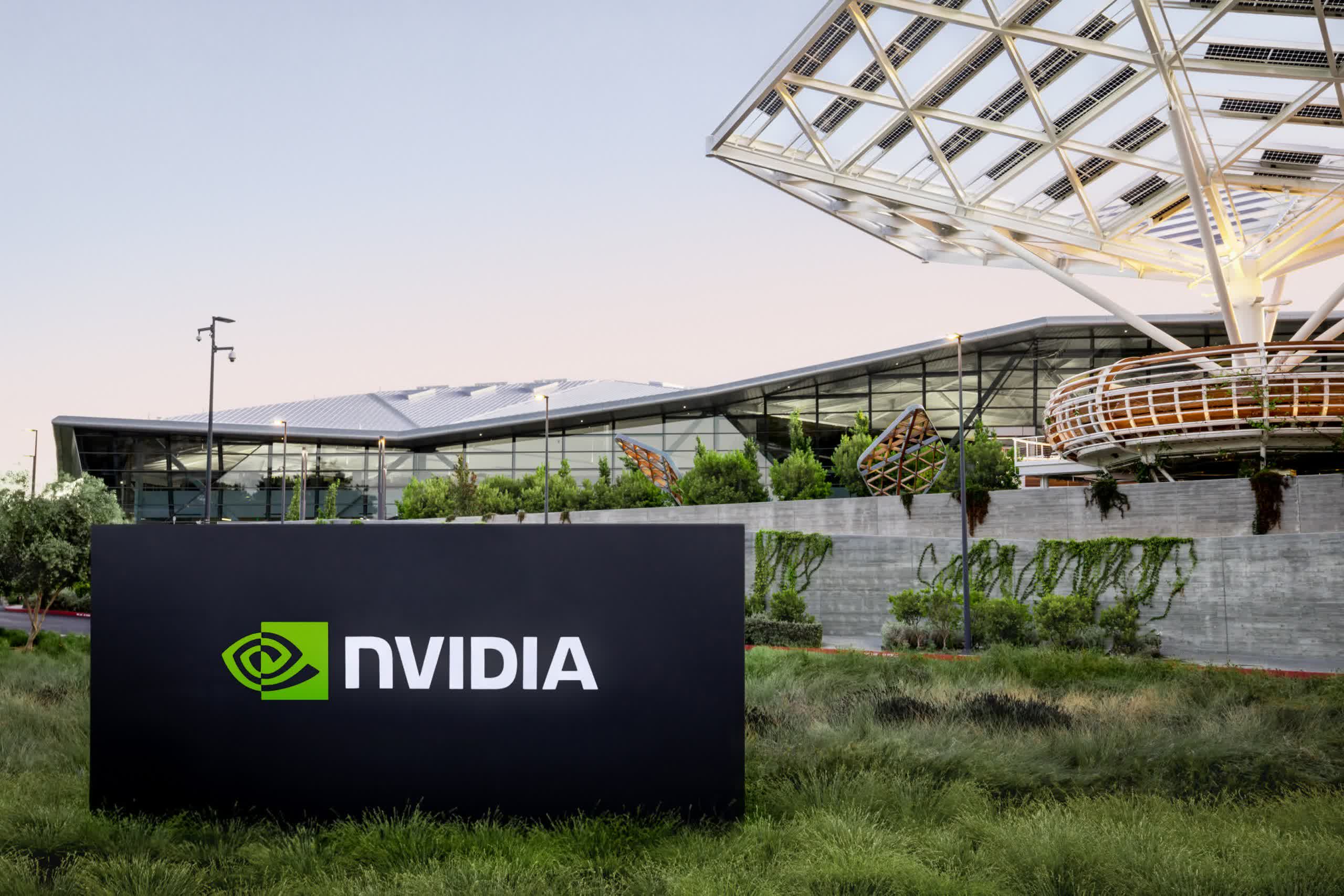What just happened? Qualcomm, Intel, and AMD are currently the leading manufacturers of CPUs for what Microsoft and Intel call "AI PCs," but Nvidia has dominated the sector with its consumer and enterprise GPUs. A recent comment from Dell could reignite rumors that Team Green might soon compete with the other vendors more directly.
In a recent interview with Bloomberg, Dell and Nvidia hinted at unveiling big plans for products in the emerging AI PC market in 2025. The latter company has touted the AI capabilities of its GPUs but has mostly remained on the sidelines of the recent push for "AI PCs" from companies such as Intel, AMD, and Microsoft.
When Bloomberg asked the two firms about Nvidia's position on AI PCs (below), Dell founder and CEO Michael Dell replied, "Come back next year," to which Nvidia CEO Jensen Huang added "Exactly." The comments could signal an oncoming shift in the company's strategy regarding AI hardware.
Intel has tried to inaugurate the "AI PC era" since introducing its Meteor Lake processors late last year. These processors offload onboard AI-related applications to Neural Processing Units (NPUs). AMD's recent CPUs have also incorporated NPUs.
Meanwhile, Microsoft recently unveiled a range of AI PCs built on Qualcomm's Arm-based Snapdragon X SoC featuring more powerful NPUs. Dell, Lenovo, and other laptop vendors are participating in the venture, which aims to become the Windows PC equivalent of the Apple Silicon Macs and iPads. The Cupertino giant plans to unveil its first big push into the AI sector next month, likely centered around its recently introduced M4 processors.

However, Nvidia's recently leaked internal presentation establishes the company's solid preference for GPUs over NPUs. It claims that its RTX graphics cards, already installed in millions of PCs in the wild, are much better at performing AI operations than the recent Intel, AMD, and Qualcomm processors.
The recent comments from Dell and Nvidia suggest that the two are collaborating on an AI PC project incorporating elements from Team Green's GPUs. However, they could also be connected to prior rumors concerning Arm CPUs.
Nvidia is no stranger to Arm CPUs; last year, it was reported that the company is planning a new processor lineup for consumer PCs. Qualcomm currently enjoys exclusive rights to make Arm Windows SoCs, but its contract with Microsoft expires this year, and Microsoft is reportedly encouraging other vendors to develop Arm processors. Nvidia's experience in both Arm and AI would make it an ideal candidate.
